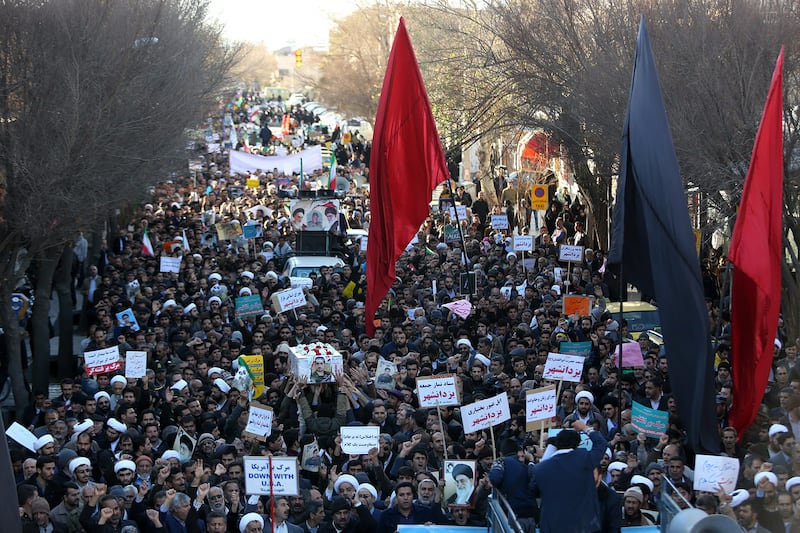Iran's former president Mahmoud Ahmadinejad has reportedly been arrested for inciting unrest against the government.
Full details of his arrest are unclear, but according to Arab newspapers, the Iranian authorities are now seeking to place Mr Ahmadinejad under house arrest with approval from Iran's supreme leader Ayatollah Ali Khamenei.
The move follows Mr Ahmadinejad’s visit to Bushehr city in late December, where he appeared to express sympathy for the thousands of protesters that thronged the streets of Tehran and other cities for seven straight days. The former president said, "Some of the current leaders live detached from the problems and concerns of the people, and do not know anything about the reality of society. Iran suffers from mismanagement and not lack of economic resources."
More than a week of unrest has left 22 people dead and more than 1,000 arrested, according to Iranian officials. The protests spread to more than 80 cities and rural towns as thousands of young and working-class Iranians expressed their anger at corruption, unemployment and the widening gap between rich and poor.
Meanwhile, Iran's Revolutionary Guards said on Sunday that the country's people and security forces had quashed the protests, as parliament and security officials met to discuss the boldest challenge to the clerical establishment since 2009.
_______________
Read more:
Instagram restored as Iran stages more pro-government rallies
Iran protests turn spotlight on extent of Tehran's involvement in Syrian war
US Government imposes new sanctions on Iran as protests continue
_______________
Residents in various cities confirmed that the protests had subsided after the government dispatched the Revolutionary Guards forces to several provinces.
"Iran's revolutionary people along with tens of thousands of Basij forces, police and the Intelligence Ministry have broken down the chain (of unrest)," the Guards said in a statement on their Sepahnews website.
In what could be seen as a further effort to curtail Western influence, Iran has banned the teaching of English in primary schools.
"Teaching English in government and non-government primary schools in the official curriculum is against laws and regulations," Mehdi Navid-Adham, head of the state-run High Education Council, told state television late on Saturday. "This is because the assumption is that, in primary education, the groundwork for the Iranian culture of the students is laid." Non-curriculum English classes may also be blocked, he added.
Children in Iran usually start learning English in middle school, around the ages of 12 to 14, but some primary schools start English classes at a younger age. Some children also attend private language institutes after their school day and many from more privileged families attending private schools start learning English in nursery - a practice which enraged Supreme Leader Ayatollah Ali Khamenei.
He railed against it in a speech to teachers in 2016, saying, "This is the promotion of a foreign culture in the country and among children, young adults and youths. Western thinkers have time and again said that instead of colonialist expansionism ... the best and the least costly way would have been inculcation of thought and culture to the younger generation of countries."
While there was no mention of the announcement being linked to the anti-regime protests, the Revolutionary Guards have blamed "foreign enemies" for the unrest.
As Iranian lawmakers met behind closed doors on Sunday to discuss last week's protests, more pro-regime rallies were held in several cities. The reformist politician Gholamreza Heydari told parliament's ICANA website that security officials had informed them that most of those arrested had been released.
Restrictions on Instagram have been lifted but access to a more widely used messaging app, Telegram remains blocked and many cities retained a heavy police presence over the weekend.






